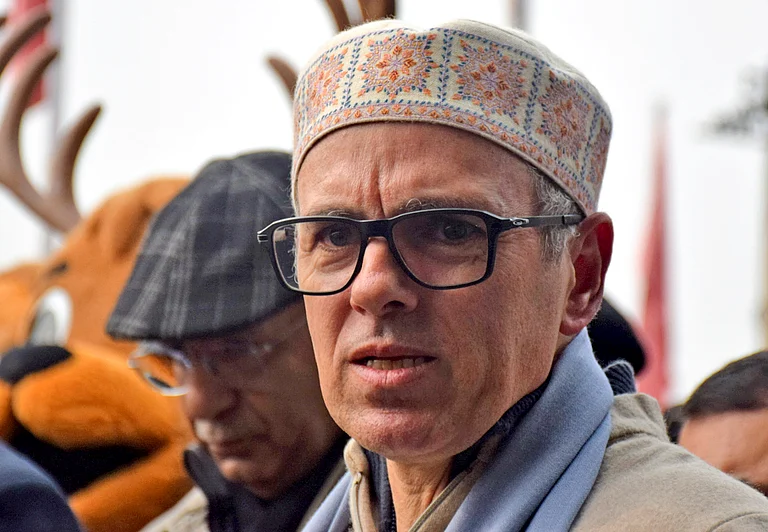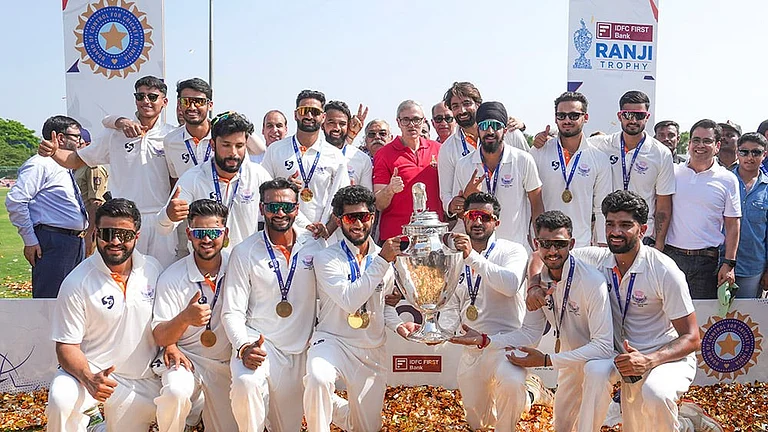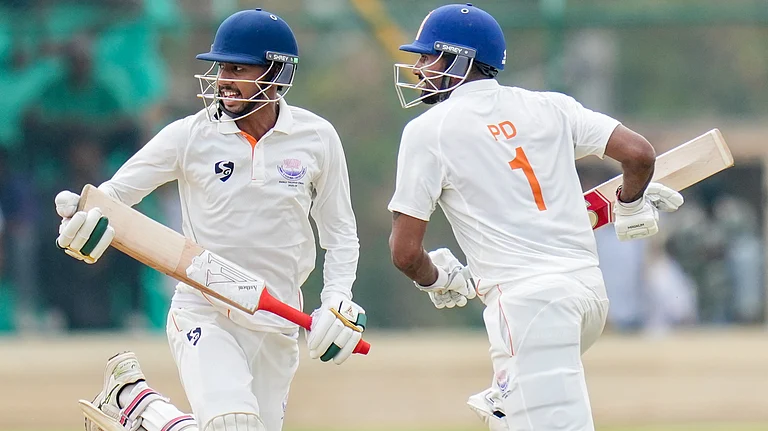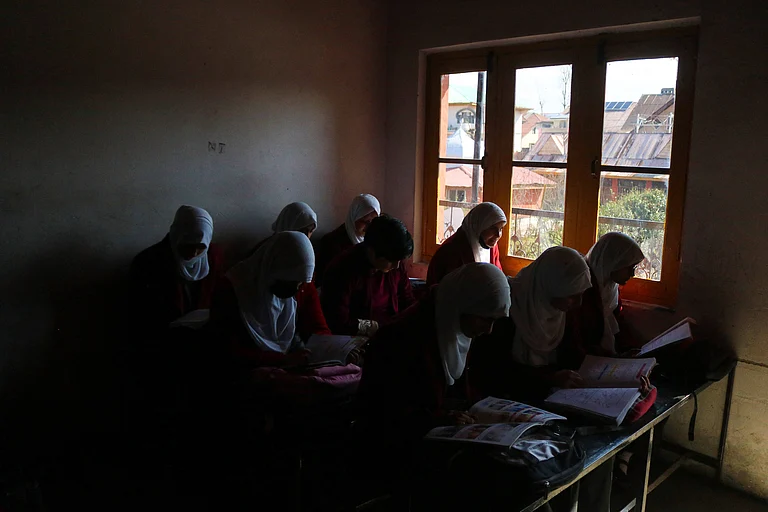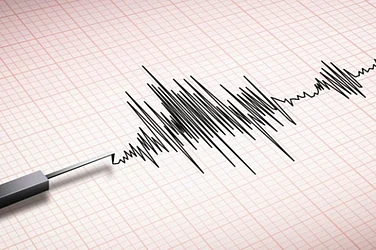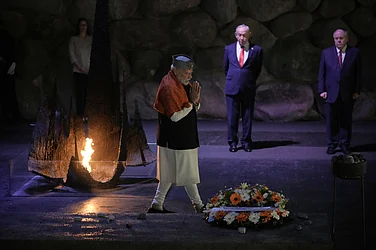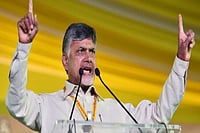
Today is the sixth anniversary of the abrogation of Article 370 which revoked Jammu and Kashmir's special status;
Ahead of the day, there was buzz that J&K statehood would be restored but CM Omar Abdullah dismissed the rumours;
Kashmiri people have time and again said that their voices are being silenced.
The evening before the anniversary of Kashmir abrogation, rumours of Jammu, or perhaps even Jammu and Kashmir, were abound on social media, news outlets across India. One media house called it a “buzz”.
The President, Prime Minister and Home Minister had had a meeting, which was all it took to start the “buzz” as one media house put it. Even as editors across the nation chased the rumour mill, Kashmir’s Chief Minister Omar Abdullah tweeted:
“I’ve heard every possible permutation & combination about what to expect in J&K tomorrow so let me stick my neck out and say nothing will happen tomorrow - fortunately nothing bad will happen but unfortunately nothing positive will happen either.”
While Abdullah added that he was “still optimistic about something positive for J&K in this monsoon session of Parliament”, he also said he was not expecting anything to happen on the sixth anniversary of Article 370’s abrogation in Jammu and Kashmir.
Not that it is a day Kashmiris, and other Indians will ever forget. “The day I found out, I sat on my couch for the whole week—didn’t wash my hair, didn’t cook, just ordered out—crying,” a senior Kashmiri journalist told Outlook. Asked why they don’t want to write about their personal experience of the day, the answer came: “Why would I want to get into trouble?”
August 5 is the sixth anniversary of Article 370’s revocation in 2019; when Jammu and Kashmir’s special constitutional status was removed. The Congress party calls it the “Black Day” and has often demanded restoration of full statehood, but has done little to achieve it. Meanwhile, BJP-aligned politicos did what they always do: highlight how the abrogation has helped the development and security in J&K. Pahalgam terror attack aside, that is, they point to the lack of stone-pelting and drop in recruitment by local militant groups.
Amid all this, the Kashmiris are quiet— some are afraid, others have been silenced; others have lost hope for change.
PDP president Mehbooba Mufti wrote on X about the failed promise of stability in the Union Territories, and pointed out that ongoing security crackdowns negate that sense of security of J&K’s own people. She added that Jammu in particular had suffered the most since abrogation. Former Chief Minister Farooq Abdullah urged Prime Minister Narendra Modi to fulfil BJP’s assurances that J&K statehood will be restored. “The minute you have elections,” he said, pointing out to the September 2024 polls in the region.
While the Supreme Court had refused to stay abrogation in December 2023, critics continue to challenge the move’s constitutional basis, arguing it has overreached and negated federal principles while bypassing India’s established legislative processes
Since then, the region’s has seen uneven civic life. High-speed internet was restored within months of blackout, and official tourism figures record huge number of footfalls—peaking at 180,000 in March 2022. Yet, just last month, Abdullah alleged that he was "locked up" inside his house soon after he returned from Delhi on the eve of Martyr’s Day.
Without naming the LG, Abdullah called his house "detention" the tyranny of the unelected in Jammu and Kashmir. He shared pictures on X of a large contingent of police outside his home and an armoured vehicle parked outside the main gate.
"To borrow from the late Arun Jaitley - Democracy in J&K is a tyranny of the unelected. To put it in terms you will all understand today, the unelected nominees of New Delhi locked up the elected representatives of the people of J&K," he wrote on X.
As Jammu and Kashmir marks this milestone, a clough of competing narratives dominate the news cycle. But the people of Kashmir, like Abdullah, remain in a kind of consternation. Should they speak up and be the next house arrestee? Should they accept the dialogues of development and double-engine sarkar?
Perhaps one of the most telling facts about Kashmir since abrogation has been that even its film and literature festivals are now government-sponsored, and thus government-censored.
During the months-long blackout that followed abrogation, craft fairs, poetry readings, and theatre performances were either cancelled or scaled down; organisers could not publicise events or coordinate with participants due to lack of connectivity services. Even after partial restoration of services, the Kashmiri bandwidth remained monitored and throttled—livestreamed events or high-resolution art portfolios virtually impossible to share online, further marginalising Kashmiri artists.
Beyond the digital clampdown, the authorities have been reported to use the Unlawful Activities (Prevention) Act (UAPA) to target individual creators. In April 2020, Srinagar-based photojournalist Masrat Zahra was charged under UAPA for posting “anti-national” images on social media. In August 2020 and again in November 2022, journalist and editor Qazi Shibli’s home was raided after they were accused of spreading “secessionist ideology.” Shibli is known for highlighting local arts and crafts in the region.
Faced with these pressures, many artists and digital creators have opted for self-censorship, or total silence. A 2023 FairPlanet report found that a number of Kashmiri poets, rappers, and videographers have left social media entirely, not wanting to be at the fag end of the government’s retaliation for content about ongoing human rights violations or any political themes. Amnesty International documented at least five prominent cases since 2019 in which journalists, activists, or artists were not allowed to travel or communicate freely. Any public figures speaking on Kashmir too have faced repercussions. In June 2024, celebrated author Arundhati Roy was sanctioned with UAPA over remarks made in 2010 about the region’s political status.
Meanwhile, the government has rebranded cultural infrastructure to give an image of “normalcy” under its direct federal administration. In November 2024, the Department of Handicrafts and Handloom, Kashmir, inaugurated an official exhibition space at the Government Arts Emporium in Srinagar, to celebrate Kashmir’s traditional crafts and landscape painting under the imprimatur of the union territory administration. The former Civil Secretariat building was converted into the Valley’s first state-run art gallery, showcasing works selected only by government curators and funded through central schemes.
In contrast, private and cooperative spaces have dwindled. Mahatta Art Gallery, established as a non-profit cooperative in Srinagar, still stands as one of the few sanctuaries for independent Kashmiri artists, but it stands alone with limited resources, and the constant threat of regulatory scrutiny.
In Outlook’s June 11, 2024 issue, The Silence of Kashmir, editor Chinki Sinha had asked: “In the campaign rallies in Kashmir, political candidates from different regional parties spoke about breaking the silence. They said the abrogation of Article 370 took away their dignity. Now is the time to speak up, they said. People turned out in record numbers to cast their votes in the Valley. What does that mean? Is it acceptance or is it the act of breaking the silence? What is this silence?”
Naseer Ganai had written about Kashmir’s unspoken realities—" This veil of silence in Kashmir has peaked even as the festival of democracy reached its last crescendo. Ganai also documented the rising tourism boom in Kashmir and its unintended consequences.
Senior PDP leader Waheed-Ur-Rehman Parra wrote about the emotional cost of peace, saying the silence in Kashmir dominates all other issues while Zahir Abdullah pointed out that this was a manufactured silence—made with crackdowns, threats and imprisonments that suppressed the Kasmiri voice.
You can read these stories and more in Outlook's Silence Of Kashmir magazine issue.







